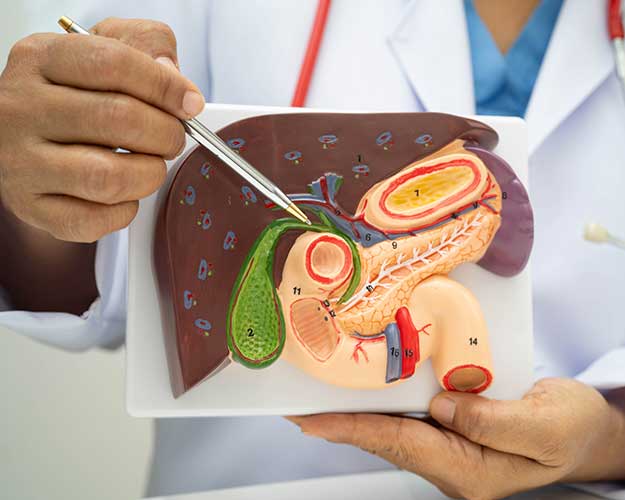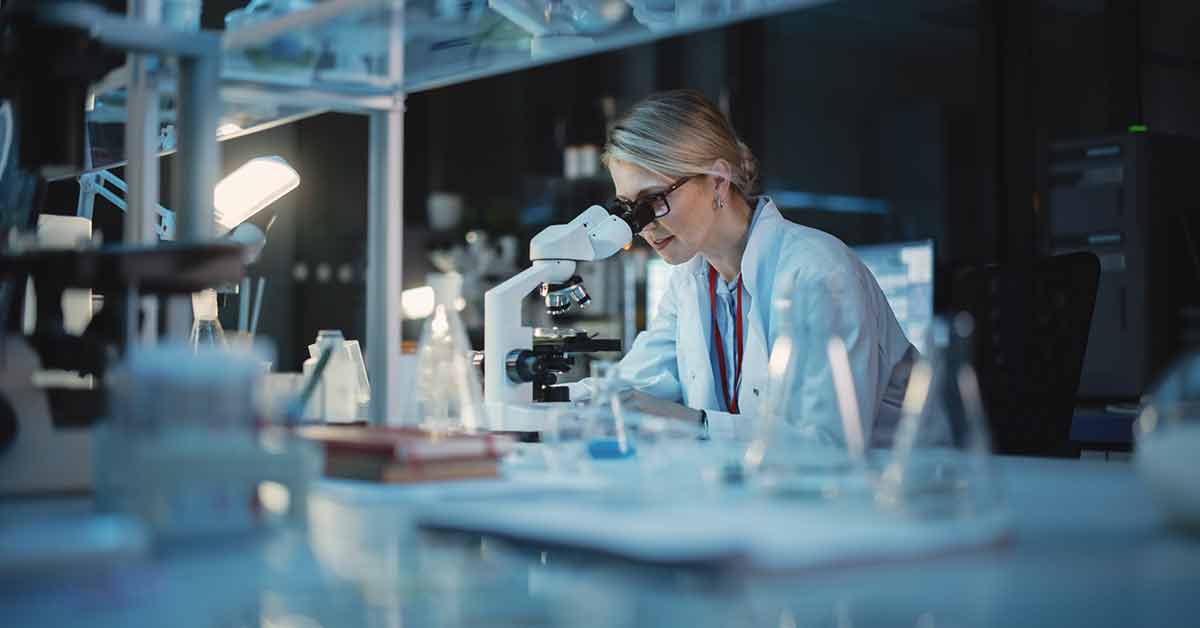Gallbladder Cancer - Summary, Symptoms, Treatments
Contact Us
What is gallbladder cancer?
Gallbladder cancer is a rare but aggressive form of cancer that begins in the gallbladder, a small, pear-shaped organ located beneath the liver. The gallbladder’s primary function is to store bile, a digestive fluid produced by the liver that helps break down fats. The most common form of gallbladder cancers are adenocarcinomas, which begin in the glandular cells that line the inside of the gallbladder.
What are signs of gallbladder cancer?
Signs and symptoms of gallbladder cancer are not obvious in the early stages. A person may feel mild discomfort or pain in the upper right abdomen, which can resemble other more common conditions, like indigestion or gallstones.
As cancer progresses, however, certain signs become more noticeable and can include:
- Abdominal pain, usually in the upper right side of the abdomen, which may be dull,
persistent or sharp. - Jaundice: yellowing of the skin and eyes due to bile duct blockage and often
accompanied by dark urine and pale stools - Nausea and vomiting that may occur frequently, especially after eating
- Unintended weight loss
- Loss of appetite; bloating or a feeling of fullness
- Fever
- Lump(s) in the upper right abdomen
- General weakness or fatigue
How is gallbladder cancer diagnosed?
Diagnosing gallbladder cancer begins with a physical examination so that your doctor can evaluate the symptoms you are experiencing. Additional information to confirm a diagnosis can be obtained through a combination of imaging tests, lab tests to measure liver function and analysis of a small sample of tissue (known as a biopsy). Because early symptoms are often subtle, it is sometimes discovered during surgery for other gallbladder conditions.
Back to Top
What causes gallbladder cancer?
The exact cause of gallbladder cancer is not always clear, but several risk factors and underlying conditions can contribute to its development. Chronic inflammation or irritation of the gallbladder, particularly due to gallstones, may lead to cancerous changes and is the most common contributing factor.
Other common causes and risk factors can include:
- Being female: Women are more likely to develop gallbladder cancer, possibly due to higher rates of gallstones and hormonal factors.
- Age: Gallbladder cancer is most common in people over age 65.
- Obesity Increases the likelihood of gallstones and hormonal imbalances.
- Chronic infections like Salmonella typhi (typhoid carriers) or Helicobacter species can increase cancer risk.
Is gallbladder cancer genetic?
Gallbladder cancer is not typically considered a strongly genetic cancer, but genetics can play a role, especially if there is a family history. It is best to talk with your doctor about any genetic predisposition to gallbladder cancer.
Back to Top
Is gallbladder cancer curable?
Gallbladder cancer can be curable if it is caught early before it spreads beyond the gallbladder. Unfortunately, most cases are diagnosed at a later stage when curative treatment is more difficult.
Back to Top
How is gallbladder cancer treated?
Each patient and each cancer is unique. At FCS, physicians develop a personalized treatment plan in partnership with patients. Treatment options for gallbladder cancer depend on a number of factors, including the specific type and stage of cancer and whether it has spread, as well as the patient’s overall health and personal preference. Treatments may include surgery, chemotherapy or radiation or immunotherapies that engage a person’s own immune system to find and destroy cancer cells.
Back to Top
Are there screening tests for gallbladder cancer?
There are currently no standard or widely recommended screening tests for gallbladder cancer for the general population. This is mainly because the disease is rare and often does not cause symptoms until it is advanced.
Back to Top





